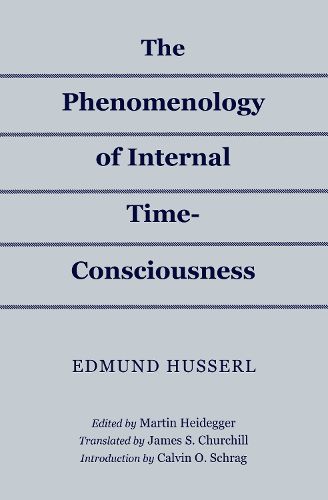Readings Newsletter
Become a Readings Member to make your shopping experience even easier.
Sign in or sign up for free!
You’re not far away from qualifying for FREE standard shipping within Australia
You’ve qualified for FREE standard shipping within Australia
The cart is loading…






The Phenomenology of Internal Time-Consciousness is a translation of Edmund Husserl’s Vorlesungen zur Phanomenologie des inneren Zeitbewusstseins. The first part of the book was originally presented as a lecture course at the University of Goettingen in the winter semester of 1904-1905, while the second part is based on additional supplementary lectures that he gave between 1905 and 1910. In these essays and lectures, Husserl explores the terrain of consciousness in light of its temporality. He identifies two categories of temporality-retention and protention-and outlines how temporality provides the form for perception, phantasy, imagination, memory, and recollection. He demonstrates a distinction between cosmic and phenomenological time and explores the relevance of phenomenological time for the constitution of temporal objects. The ideas Husserl developed here are explored further in his Ideas and were pursued until the end of his philosophical career.
$9.00 standard shipping within Australia
FREE standard shipping within Australia for orders over $100.00
Express & International shipping calculated at checkout
Stock availability can be subject to change without notice. We recommend calling the shop or contacting our online team to check availability of low stock items. Please see our Shopping Online page for more details.
The Phenomenology of Internal Time-Consciousness is a translation of Edmund Husserl’s Vorlesungen zur Phanomenologie des inneren Zeitbewusstseins. The first part of the book was originally presented as a lecture course at the University of Goettingen in the winter semester of 1904-1905, while the second part is based on additional supplementary lectures that he gave between 1905 and 1910. In these essays and lectures, Husserl explores the terrain of consciousness in light of its temporality. He identifies two categories of temporality-retention and protention-and outlines how temporality provides the form for perception, phantasy, imagination, memory, and recollection. He demonstrates a distinction between cosmic and phenomenological time and explores the relevance of phenomenological time for the constitution of temporal objects. The ideas Husserl developed here are explored further in his Ideas and were pursued until the end of his philosophical career.